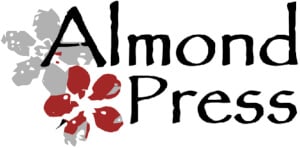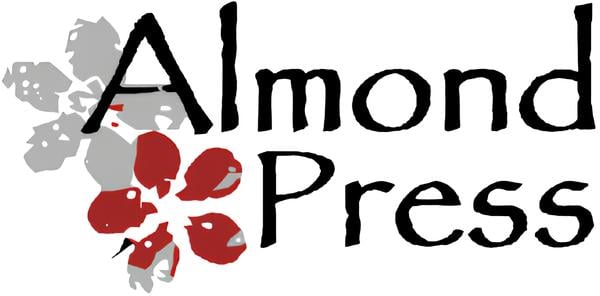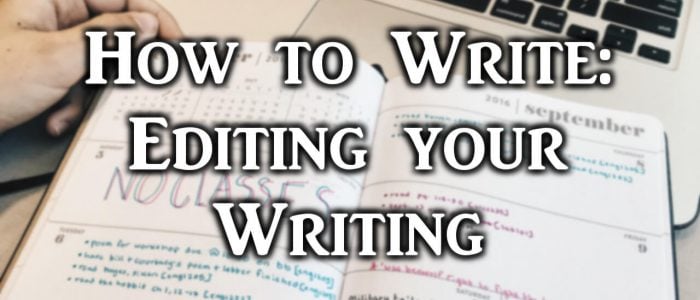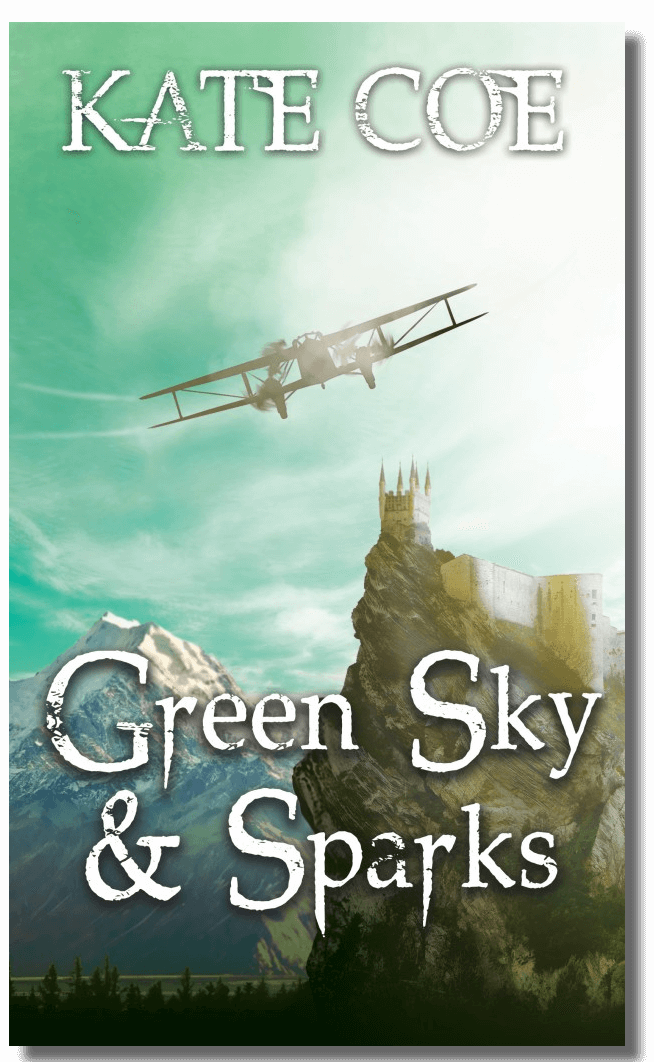How to Write: Self-editing your Work
So, you’ve finished a first draft of something. Yay! But before you send it to anyone else, you need to re-read it.
Editing is majorly, majorly important. Unless you’re a comprehensive planner and sketched out everything before you wrote it, you’ll have some organic writing; you’ll have points where the characters have gone off on their own, or that piece of plot didn’t work, or you’re not entirely sure what happened to that scene. You’ll have writing you did at 2am and 11pm and high on caffeine and snatching a quick moment between other tasks. You need to at least re-read your own work to check that it makes sense, that it is what you wanted it to be, and that it works as a complete piece.
The benefit of self-editing is also that it teaches you how to improve your own writing. If you look at your own work with a critical eye, you start to spot the flaws – and then you can change them! Editing isn’t meant to be a process of self-loathing and criticism; it’s meant to be a process of critique and improvement. It’s meant to make the writing better.
- Don’t edit as you write. Most writers tend to find it distracts from writing new stuff, and it can also put you off if you’re overly critical about what you’ve already done.
- Get some distance. Let the writing settle; two weeks is a pretty good amount. If you read it too soon, you’ll ‘know’ everything you wrote – you need to be a new reader, yet still remember what you were intending when you wrote the piece. It’s a hard balance!
- Edit first. You should always be the first reader – don’t send it to your alpha unless you’ve at least looked it over once.
- Edit in short chunks. Don’t try to do the whole thing at once! Chapter by chapter, and reward yourself at the end of each.
- Keep organised. You’ll work out the best way to edit; you could jump through the writing as you follow one theme, or do a linear chapter-by-chapter edit and keep a note of anything overarching. Either way, make sure you note things as you think of them, and then you won’t lose your place as you notice other things that need fixing.
- Editing is hard. You are not the only one feeling overwhelmed! The general feeling amongst most writers is that writing the book is the easy bit. Editing it…not so easy.
- A tip: vary the format. Change the font or paper size; turn it into an ebook or pdf. You’ll be surprised at what you pick up when you’re seeing it as a book rather than a writing project.
So what is editing supposed to do? What are you actually trying to look for?
What works?
This is important – what have you done well? What’s a really good piece of writing? If you’re into analysing language, can you work out why that piece works? If you’re not into analysing language (which I’m not), just mark it as “well, I’m awesome” and move on…
What doesn’t make sense?
Are you adding things in your own head because you know it, but maybe the reader doesn’t? Do you need to explain anything further? This is where the two-week gap can help; it removes some of the immediacy, and makes you think about things you just knew when you were writing.
What could be added?
Could an extra word, sentence or paragraph help that particular section? This can be majorly important or just cosmetic.
What could be removed or condensed?
Can you change that paragraph to a sentence? Would it work better somewhere else?(A tip: Keep a separate file with the bits you take out. Keep those amazing sentences and scenes that you love but just don’t fit. They might be helpful another time, or you can just go back and re-read.)
Once you’ve read it over, fix what you can, and then you can potentially send it out to alpha readers. It’s had one set of eyes: next, show it to someone you trust and hope they like it!
Green Sky & Sparks
by Kate Coe
- What is a writing competition? Why should I pay to enter? - November 15, 2018
- How to Write the Book Introduction to Hook Your Reader - October 7, 2017
- How to Write: Self-Publishing Your Work Online - October 1, 2017



